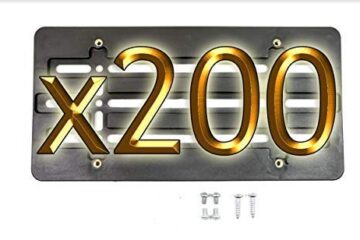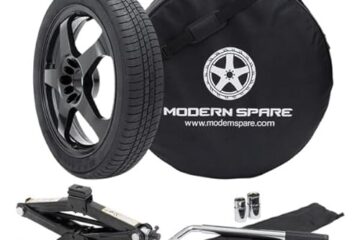Lifter Tick Vs Rod Knock: Which Engine Noise Should You Worry About?
Lifter tick and rod knock are two engine noises caused by different issues. When your vehicle engine produces unusual sounds, you may not know whether it is a lifter tick or rod knock.
In most cases, you may not even be aware of these terms. So, what is a lifter tick, and what is a rod knock? These are two common engine noises that you should be aware of as a car owner.
Both of these noises can indicate serious problems with your engine, and understanding the difference between the two can help you identify the correct issue with your engine. In this article, we will define these two problems and discuss how to diagnose and fix them.
Understanding Lifter Ticks
Lifter ticks are a common problem for car owners. Also known as a tapping sound, lifter ticks are caused by a lack of lubrication in the engine. The sound is most noticeable when the engine is cold. Symptoms of lifter ticks include a tapping sound, reduced engine performance, and engine oil leaks.
If you suspect you have a lifter tick, it is essential to have it diagnosed by a professional mechanic. Diagnosis typically includes an inspection of the oil pressure, valve lifters, and engine components. Lifter ticks can be caused by a variety of factors, including a damaged lifter, worn camshaft lobes, and low oil pressure.
Understanding the causes, symptoms, and diagnosis of lifter ticks is crucial for maintaining the health of your vehicle and avoiding costly repairs in the future.
Understanding Rod Knock
Rod knock refers to a high-pitched, knocking sound in an engine. It usually stems from a damaged or loose rod bearing. The bearing fails to cushion the movement of the connecting rod, resulting in a loud sound. There are several reasons why rod knock occurs, including insufficient oil pressure or using the wrong oil.
Common symptoms of rod knock include knocking noises when the engine is running and decreased engine performance. Diagnosing rod knock can be challenging, but it usually involves a mechanic performing a visual inspection and listening to the engine’s sound. Overall, it’s essential to understand rod knock as it can cause severe engine damage if left unchecked.
Differences Between Lifter Ticks And Rod Knock
Lifter ticks and rod knocks are two distinct types of engine noises that require different repairs. Sound differences can be characterized by the type of clunking. Lifter ticks usually sound like tapping on a tin can, while a rod knock is more of a deep thud noise.
The location of noises can also help determine the issue. Lifter ticks are most commonly heard at the top of the engine, while rod knocks are usually heard at the bottom. The severity of noises differs as well. While lifter ticks are typically less severe, rod knocks can cause significant damage to the engine if left unattended.
The effects on engine performance may vary depending on the level of severity, but it’s crucial to get the correct diagnoses and repairs to prevent further damage.
Which Noise Should You Worry About?
It can be alarming to hear unusual noises coming from your engine. Lifter tick and rod knock are two common sounds that drivers encounter. The severity of the noise can vary, with rod knock being the more serious of the two.
The cost of repair can also differ greatly depending on the damage caused. It’s always wise to seek advice from an experienced mechanic who can provide insight into the extent of the damage and potentially prevent further damage. Testimonials from professionals can be a helpful resource when deciding whether to pursue repairs.
Ultimately, it’s important to address any engine noises promptly to prevent potential long-term damage and costly repairs.
Frequently Asked Questions On Lifter Tick Vs Rod Knock
What Is Lifter Tick And How Does It Differ From Rod Knock?
Lifter tick is a ticking noise coming from the top of the engine, while rod knock is a knocking sound coming from the bottom of the engine caused by a loose or worn connecting rod bearing.
Can Lifter Tick Or Rod Knock Be Fixed Without Replacing Parts?
In some cases, lifter tick can be fixed by using an engine oil additive, while rod knock usually requires bearing replacement or complete engine rebuild.
What Are The Consequences Of Ignoring Lifter Tick Or Rod Knock?
Ignoring lifter tick or rod knock can lead to engine damage or failure as the metal-on-metal contact can cause further damage to engine components, leading to costly repairs.
Conclusion
To sum it up, understanding the difference between lifter tick and rod knock is crucial in maintaining your engine’s health and performance. It is important to address any noises coming from your engine and identify whether it’s a lifter tick or rod knock.
Both issues may lead to serious engine damage if left unattended. Regular maintenance and oil changes can help prevent these problems. Always stay vigilant and listen to your engine to avoid costly repairs down the road. Remember, taking care of your vehicle is not only essential for its longevity, but also for your own safety.
So, if you suspect any engine issue, don’t hesitate to have it inspected by a professional. Taking action early on can save you both time and money in the long run.





1 Comment
4 Brand Make The Best Hydraulic Roller lifters – Automotive Simple · 19 February 2024 at 21:53
[…] lifter ticks are normal. However, a sudden change in noise level or erratic ticking demands investigation (refer […]